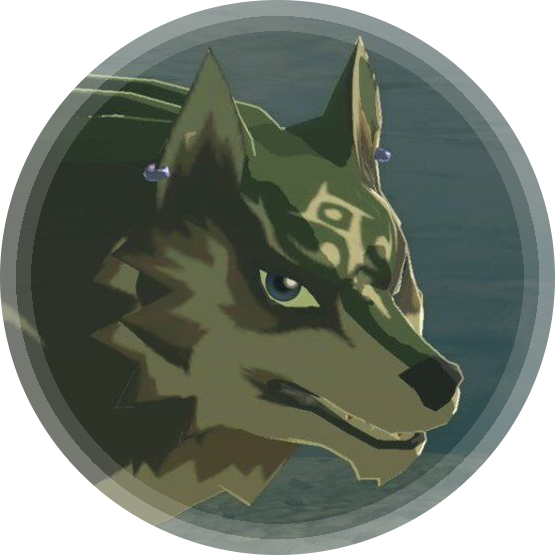Sorry, I don’t really know how to phrase my question. For example, we know that over here in the USA, a box set of dragon ball z contains the English dub and the original Japanese track. If someone from somewhere else wanted to watch, let’s say SpongeBob on DVD, could they expect the original English track or was it commonplace to only have the local dub? ETA: Of course I’m referring to the time period before streaming, and I mean any type of popular cartoon.
In Germany just about everything is dubbed. But generally the dubs are pretty good, sometimes even better than the original.
We used to be able to watch the British Cartoon Network. I loved it as a kid. So many awesome shows and it greatly helped me learning English. But at some point they started scrambling it. That was a very sad day for young me.
Nowadays you may be lucky to see Peppa Pig first shown in German and then the same episode in English to help children learn. Dora the Explorer also speaks English over here and not Spanish. And sometimes you get lucky and a broadcaster will send two soundtracks for you to choose from. But that is very rare and usually only done by public broadcasting channels.
On DVDs and on streaming services you usually get the choice of at least the German dub or the original version. I’m so used to it that I usually don’t even check to see if that is the case. Bit me in the ass the other day when I wanted to watch a movie in English but Amazon Streaming only had the German soundtrack. The DVDs of Hero and Trainspotting also did not contain the original tracks. Especially the latter really pissed me off.
Star wars: the clone wars had a dope german dub. but pretty much everything else is better with original sound. (although i did watch a pretty good darling in the franxx dub as a kid)
I’m curious, if Dora spoke Spanish, do you know if it would’ve been Latin American or Spain Spanish?
Don’t know about Germany, but in France, Dora teaches you English!
last i checked, the german version was english as well.
Yup, can confirm
Also German here. The lack of English(!) dubs on anime sold in Germany pisses me off more than it rightfully should, but if I want to watch Mononoke, Spirited Away or Howl’s Moving Castle and the like, the DVDs always only have the options of German or Japanese audio with complimentary subtitles. I actually prefer the English dub in most of these.
It was also extremely weird to hear Phil Collins sing German lyrics for Disney’s Tarzan. I knew the (English!) soundtrack before I watched the movie and it completely caught me off guard.
Since Pretty much when I started watching anime, it was the japanese dub with English subtitles. Nowadays, I’m just learning 日本語, it’s a beautiful language after all.
In the Netherlands, we all basically knew (very basic) English BEFORE we could READ ( the subtitles)
Indeed. Infact every smaller country utilizes subtitles. Bigger countries dub their movies and shows. Dubbing is too expensive for smaller countries.
We have a shit ton of dubbed shows and films as well. Some were even way better than the English dub.
True yeah, the ones aimed at younger children. I was talking more in general. Like in Germany for instance where they dub almost everything, for the children and adults alike.
Source: I’m also Dutch ;)
I traveled through the Netherlands briefly. It’s one of the few places where I’ve ever felt uncomfortable with my English. I’m American, an English is my first language.
The homeless people in Amsterdam have better diction than I do.
Says plenty about the US education system, doesn’t it?
I think it says more about the role of English in the world today.
You can travel across a large part of the world only knowing English. It is a Lingua Franca for international trade, even between two countries that don’t speak English.
And along with that, there are local dialects of English that are different an international standard. It is a lot harder to correct the use of a language learned in a community than that you learn from media and education.
Cartoons for kids are usually dubbed though. I say for kids because stuff like the simpsons and rick and morty is still just subbed.
Nickelodeon stopped being dubbed after 10 pm iirc. And there were some shows on Jetix that had subs for the first seasons and we’re only dubbed later.
Not in the 80s
There are online arguments over whether it’s better to watch King of the Hill dubbed or with subs.
Same, but with DBZ, The Simpsons and other cartoons for English vs Mexican Spanish dubs. I gotta say, our dubs are surprisingly good.
I can think of no finer (got dang) way of learning the Queen’s English.
This feels very wrong considering “got dang” is very much not the Queen’s (or King’s, for better or worse) English.
deleted by creator
Here, everything is dubbed, but in the neighboring countries, only children’s stuff is dubbed, and later stuff is English with subtitles.
Your should specify what “here” is
“Here” is Germany. Sorry, forgot to mention it.
On dvd yes, they all had the original language plus the dubbed one. Anything out of dvd no. Even when dvb-t came out (digital broadcasting) very few programmes had the original track. Now it’s a bit more common, but not the general rule.
In Estonia like everything aimed at kids was dubbed to Estonian but very poorly, it was one of my motivators for learning English.
I’m going to talk about Argentina during the late 90s- early 2000s. There was no streaming yet, however some shows came with a thing called Secondary Audio Programming, aka SAP, which you could enable with a button on your remote control. There were NO subtitles though, so if you didn’t understand what was being said you were on your own.
Personally I liked to watch most Cartoon Network shows with SAP.
I don’t think I’ve ever bought any series on dvd before the streaming ages, so I won’t talk about that. However, if you were going to the cinema you could pick if you wanted the original with subtitles or the dub. Most live action films not for kids were more often available in its original voicetrack but the reverse was true for animated and children’s content. You had to search more or go to a late night screening to watch Disney with subtitles for example.
Yes everything is voiced over, which I quickly grew tired of as an adult, you lose some in translation and voice acting. Most stuff on DVD is localized by default but you can select voice and subtitles languages. TV programs often have the option as well. Some theaters offer movies in their original language with subs, but it’s not commonplace. I didn’t watch anything on tv, dvd or at the theater for years tho.
I remember watching Month Python and The Holy Grail in Japanese, but with English subtitles. Definitely missed some things in translation haha.
Latin-American dubs were usually done in Mexico, and they usually used eufemisms instead of expletives, many jokes were lost or retranslated to suit the translator’s humor, they substituted references to places and people as they saw fit, and they could even invent completely new dialog 🤦🏻
Oh yeah they did something similar to japanese cartoons that were marketed to children a few decades ago. They completely made up dialogues because the original ones were too violent (but not intended for children), resulting in hilarious nonsense when you look back at it. There wasn’t much translation involved in the end.
OP, are you ESL (like me)? I’m sorry, I’m not mocking you or anything but your thread title reminds me of Monty Python’s “People called Romanes, they go, the house.”
I’m not offended, I can see why you think that lol. I was running on 3 hours of sleep after driving 12 hours home, so let’s just say my mind wasn’t the clearest.
Almost everything here is locally dubbed, with few exceptions. Usually I’d have to search online to find the original English voices for cartoons.
Something that was really common was having my channels in my local language free, but the English variants paid. Cartoon Network was a bit notorious for this because the local version would constantly get new seasons or shows late, and they’d have to cover for it with re-runs.
This isn’t the case anymore though. With streaming, it usually defaults to English and you get to choose your dub. Very neat.
In alot of the developed countries you’d get the local dub if available as well as the english track. The most common case would be to have the local language subtitles along with the english track. It mostly depends on an IP being picked up for localization by a local publishing studio and passing the censor board of the respective country.
In alot of developing countries you’d not get anything other than the english track so no subtitles at all. However it’s actually not so definitive because if you went to a store to buy say “SpongeBob anthology DVD collection” you’d most likely end up with a bootleg set which is just pirated off the web and burned onto a couple of DVDs with a generic SpongBob Logo sticker(Literally) on the DVDs. So basically random, it could have subtitles burned onto the video in arabic for all you know.
Bit late but I just remembered two interesting cases:
- some Japanese animes not intended for children but marketed to them in France ~30 years ago were sometimes not translated but dialogues were improvised to censor anything inappropriate
- in Switzerland they used to put subtitles in 3 languages resulting in a ridiculous proportion of the screen covered with text (maybe they still do idk)
Yes 95% of the time, original English audio track with subtitles and then local language. Except for the french versions, if I remember correctly those only had french dub as audiotrack. Could be wrong though we never bought/had those. When my parents were still in charge of tv time they put on the original version even if the original audio was something other than English and turned on local language subtitles. To practice other languages.
Hell, I watched them without subs, lol 😂. CN was a blast in the 90s and early 2000s 🥹.
Cartoon Cartoons!
Well in the 90s in Eater Europe we first had cable TV without subs or dub, just the original track (English, German, Italian, Spanish) so we had to learn the language just watching the shows trying to understand. Then subs started to be common and almost no dub. Then in late 2000s dubing started to be the norm for animations but movies are still subed and nobody likes dubed movies.












